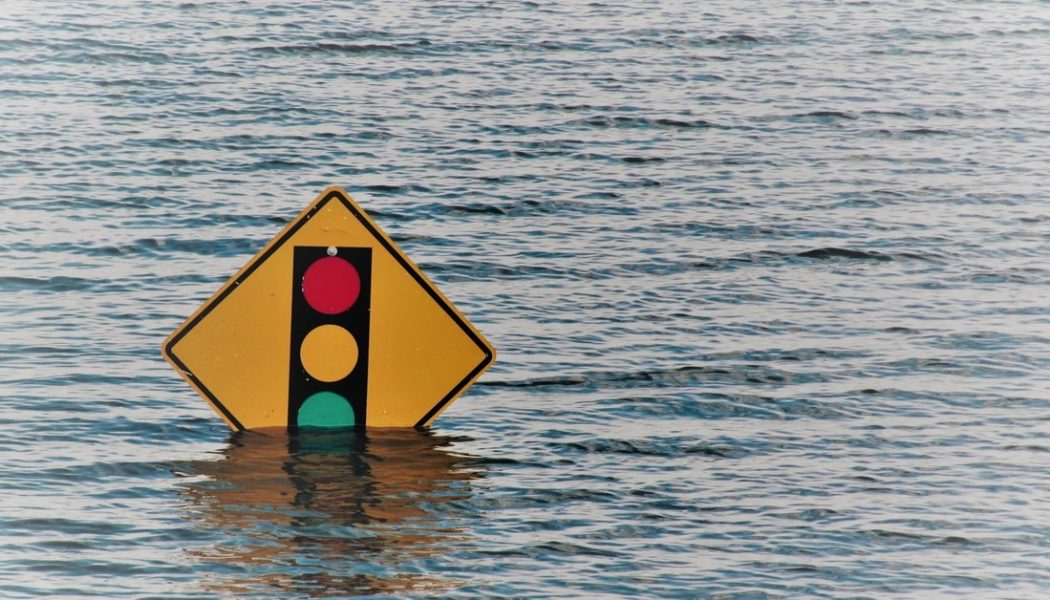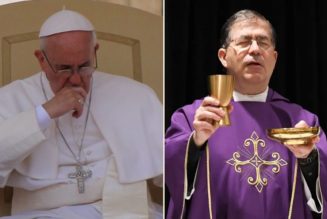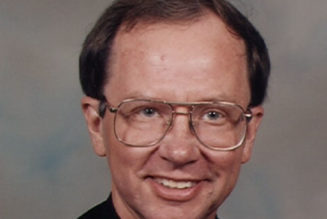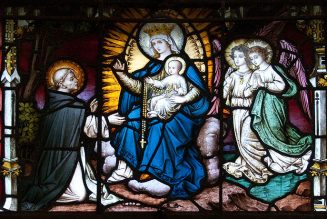
In 2017 I drove to Houston after Hurricane Harvey to help with relief efforts. A drive that would normally take 1.5 hours took me twice as long, due to closed streets, debris, flooding, etc. I finally made it to my destination and spent the rest of the day at a home that had 5 feet of water in it. It was a daunting task. You have to wonder how we could ever recover from such a disaster. I know that many homeowners wanted to wish the problems away and if they could, go back to how things used to be. There is despair, anxiety, anger, sadness, and more, when we face big problems that are out of our control and affect so many.
Many Catholic leaders are in this predicament currently, when they consider the fallout from the pandemic. They think of their parish / diocese and ask:
- When will it end?
- Will donations ever go back up?
- Will more people come back to Mass when we can have full churches again?
- Will the programs, events, and classes ever be hosted in our buildings after this is over?
- Will it get worse?
There is a natural desire to make it all go away. Part of this is the tendency that Catholic culture has to maintain the status quo. Keep things running. Manage the operations of the internal mechanisms of Catholic life. This can lead us to being more inwardly-focussed, rather than mission-minded. We tend to lose our mission (to evangelize) in the day-to-day operations of Catholic institutions. So, what are we to do? I have some advice.
GO!
Catholic leaders need to stop asking, “how do we get back to pre-Covid days”? This question makes the assumption God wants us to return to what we were previously doing. We shouldn’t assume this. Furthermore, why would we return to days that meant decline in numbers, failure to live out our God-given mission, and strategies that failed us? Our job has never been to maintain institutions. It is to make disciples.
So, instead of asking how do we go back, we need to ask:
- What does God want of us post-Covid?
- What change & renewal are required for us to recapture a missionary vision that reaches our area with the Gospel?
- What past activities have been impediments to our mission that we need to stop doing?
- What things have we not been doing, that help advance our mission, which we need to start doing?
- What personal habits do I need to start / stop in order to be more fruitful myself?
- How do we save as many people as possible?
The natural momentum of any institution which has existed for generations, is to maintain itself. This is the case for most parishes and dioceses.This momentum can lead us to replace methods for mission.
Methods are what we do – some we don’t have the power to change (e.g., prayers in Mass), but some we can change- programs / events / classes / planning / etc.
Mission tells us why we exist. It is the engine which drives the car. We don’t get anywhere without it.
So, when we replace methods for mission – we start to value what we do more than why we do what we do. Without a proper “why”, we are bound to lose our way. Newspapers that didn’t go digital, then went bankrupt – are good examples of organizations which confused method for mission. So, what is a Catholic parish in the business of? Programs, classes, and events OR making disciples? Get it wrong and it means the difference between fruitfulness and merely managing decline.
MISSION-MINDED
To fight against this momentum, we need to communicate the mission clearly and allow it to not get confused with methods. The sacred cow events, programs, and classes need to be integrated into the mission or cut. This kind of change is difficult and will take a long time. But, the pandemic gives us a unique opportunity. Still, big changes need to be bathed in discernment and prayer. It will also need leaders of courage and patience, because you will not get 100% buy-in, no leader who does the right thing will (even Jesus)! It is worth the price you have to pay, to see souls enter into heaven.
If our goal is transformation and not preservation, then we have to look forward with a missional mindset, not one that merely longs for the nostalgia of past days, when things were easier.
God wants transformed disciples not just involved parishioners. To make this happen, we have to take advantage of the unique opportunity that exists in our midst. Otherwise, decline will speed up, not just remain on the same trajectory. As I wrote, close to the start of the pandemic:
The coronavirus crisis is heightening these problems by showing how many parishes are already in financial turmoil and lack vision / leadership. Many are scrambling to get online payments set up, do social media, etc. Things that they should have been looking into a decade ago!
The fallout could result in more parishes / dioceses facing bankruptcy, financial issues, layoffs of staff, closing down parishes, consolidation of parishes, selling off of property, etc.
Unfortunately, I have been accurate in my predictions. But, this isn’t the end of the story and I believe God isn’t done with transforming us into the disciples he wants us to be. The question isn’t if God has a plan and is active – it is whether we are discerning that plan and are faithful to helping it come to fruition.
We have a God who doesn’t settle for letting humans ruin his ultimate plan. His grace is bigger. His mercy is stronger. He will succeed, with or without us. Even if we can’t individually change our Church, we can still resolve to do better personally. What about you and me? Where do we need renewal, repentance, change in habit, growth in faith, more hope, stronger love, and surrender to grace? Start in those places. But, don’t stop there.
A POST-COVID PARISH
We have to get comfortable with the fact that our post-covid institutions will not look the same. This can be good or bad.
It will be bad if we aim to go back to how things were. This is because we can’t go backwards and thus, we set ourselves up for failure and disappointment.
It will be good if we can do what God asks of us, with courage and perseverance. If you are a Catholic leader and want to change things in your parish and diocese, then start the difficult conversations, the changes in habit, and make the tough decisions that will cause your part of the Church to be more mission-oriented. Furthermore, if you are praying for renewal in the Church but are not willing to be radically converted or change your own habits, then you are praying that God will use others for renewal, not you. So:
- Let us love each other fully.
- Let us serve our communities.
- Let us fight for what is true and good.
- Let us not settle for what our parishes looked like in the past.
- Let us be saints.
- Let us be courageous.
- Let us invest our lives in others.
- Let us pray.
- Let us evangelize and make disciples.
- Let us propose Jesus and his Gospel to the world.
- Let us make tough decisions that lead to renewal in our parishes and dioceses.
Our job is to be holy, glorify God, go to heaven, and get as many others as we can to join us there. The parish exists in order to facilitate these things. We won’t achieve much by settling for anger, frustration, and merely watching the flood waters rise around us, waiting for help to come.
“The Church exists for nothing else but to draw men into Christ, to make them little Christs. If they are not doing that, all the cathedrals, clergy, missions, sermons, even the Bible itself, are simply a waste of time.” -C.S. Lewis
If CS Lewis was correct when he wrote those words (and he was), then let us get to our mission.
————-
If you are a Catholic leader in a diocese or parish and you want help in figuring out the practical steps to making this happen, we can help. Contact us for more information.






